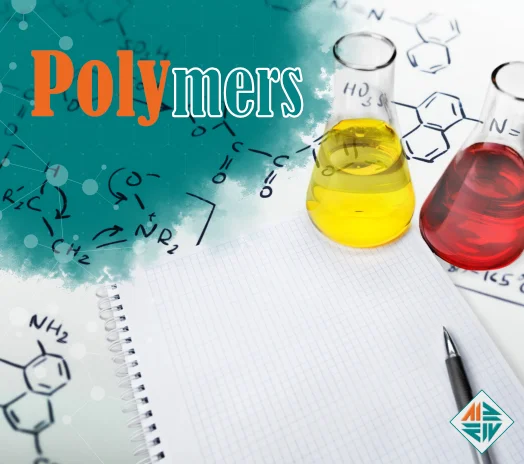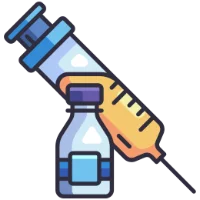Polymers

Polymers: Versatility and Applications in India
At Maxwell Additives, our mission is to empower industries and foster innovation through the limitless potential of Polymers. At Maxwell, we don't just provide solutions; we ignite innovation and enhance the lives of people around the world by enabling industries to thrive and meet evolving needs.
Polymers, the building blocks of modern materials, are composed of long chains of repeating molecular units. Explore the fascinating chemistry behind Polymers and how these molecular structures give rise to a wide array of unique properties.
Safety is paramount in any application. Maxwell Additives is committed to ensuring the responsible use and environmental sustainability of Polymers in your operations.
INQUIRY NOWOur Product Range
Our Product Range
POLYMAN-4000
A Homopolymer of Poly Acrylic Acid, POLYMAN-4000 serves as an efficient solution in various industrial applications, ensuring effective water treatment and scale inhibition.
POLYMAN-4000PN
A Homopolymer of Poly Acrylic Acid, POLYMAN-4000PN serves as an efficient solution in various industrial applications, ensuring effective water treatment and scale inhibition.
POLYMAN-2000
As a Poly Maleic Acid Homopolymer, POLYMAN-2000 delivers exceptional performance in industrial processes, offering robust scale inhibition and corrosion control capabilities.
POLYMAN-4905
A Carboxylic AMPS Co-polymer, POLYMAN-4905, offers efficient water treatment solutions, showcasing superior scale inhibition and corrosion control properties in diverse industrial applications.
POLYMAN-1200
POLYMAN-1200, a Carboxylic Co-Polymer, stands as a versatile solution, ensuring effective scale inhibition and corrosion control, contributing to enhanced operational efficiency in industrial processes.
POLYMAN-1400
Designed as a Carboxylic Sulfonate Co-Polymer, POLYMAN-1400 excels in various industrial applications, delivering robust scale inhibition and corrosion control, essential for maintaining system integrity and longevity.
POLYMAN-4900
A Carboxylic Sulfonate Multi Polymer, POLYMAN-4900, represents a sophisticated solution in water treatment. This Quad-Polymer ensures superior scale inhibition and corrosion control in industrial applications, optimizing system efficiency.
POLYMAN-1100T
A Phosphino Carboxylate Multi Polymer, POLYMAN-1100T, stands as a cutting-edge Quad-Polymer. Its advanced formulation offers exceptional scale inhibition and corrosion control properties, essential for maintaining the integrity and performance of industrial systems.
POLYMAN-1240A
An Anionic Ter Polymer, POLYMAN-1240A, stands as a powerful water treatment agent, offering robust scale inhibition and corrosion control properties. Its effectiveness is pivotal in various industrial processes, contributing to enhanced operational performance and equipment durability.
POLYMAN-1624
A Non-Ionic Ter Polymer, POLYMAN-1624, provides versatile water treatment solutions, ensuring effective scale inhibition and corrosion control in industrial applications, promoting system efficiency and longevity.
EXACTA-1000-P
A pioneering Phosphorus Carboxylate Corin Polymer, EXACTA-1000-P, represents a breakthrough in water treatment technology. This Corin-Polymer formulation ensures exceptional scale inhibition and corrosion control, vital for maintaining the efficiency and longevity of industrial systems.
IMPORTANCE
Benifits of Polymers Chemicals
Lightweight
They are significantly lighter than metals, reducing overall weight in products like cars and airplanes.
Durability
Polymers are resistant to corrosion, chemicals, and wear, ensuring long-lasting performance.
Cost-Effectiveness
Polymers are often more affordable to produce than other materials, leading to cost savings in manufacturing.
Environmental Impact
Certain polymers can be recycled, reducing environmental pollution and promoting sustainability.
Applications of Polymers Chemicals

Packaging
Polymers are widely used
in packaging materials such as plastic bags, containers, and films due to their lightweight and protective properties.

Automotive Industry
Polymers are utilized in vehicles for components like bumpers, dashboards, and tires, contributing to reduced weight and improved fuel efficiency.

Medical Devices
Polymers are essential in medical applications, including syringes, implants, and prosthetics, due to their biocompatibility and versatility.

Electronics
Polymers are used in electronic devices like insulators, circuit boards, and displays, offering electrical insulation and enhancing device performance.
Safety Considerations in Polymer Handling
Safety is paramount in any application. Delve into essential safety considerations when working with Polymers. Maxwell Additives is committed to ensuring the responsible use and environmental sustainability of Polymers in your operations..

FAQ's
A polymer is a large molecule composed of repeating structural units, typically connected by covalent chemical bonds. These units form long chains, giving polymers their unique properties.
Polymers can be classified into two main types: synthetic polymers, which are man-made (e.g., plastics), and natural polymers, which occur in nature (e.g., proteins, DNA).
Polymers are made through a process called polymerization, where monomers (small molecules) are chemically bonded together to form a long chain. This process can occur through various methods, including addition polymerization and condensation polymerization.
Polymers are used in a wide range of applications, including packaging materials, automotive components, medical devices, electronics, clothing, and construction materials, due to their versatility and diverse properties.
Not all polymers are easily recyclable. Some, like PET (polyethylene terephthalate) used in plastic bottles, are widely recycled, while others, like certain thermosetting plastics, are challenging to recycle. Advances in technology are improving polymer recycling methods.
Some polymers are biodegradable, meaning they can be broken down by natural processes. Examples include polylactic acid (PLA) and certain starch-based polymers. Biodegradable polymers are often used in environmentally friendly packaging and disposable products.
Improper disposal of polymers, especially non-biodegradable ones, can lead to environmental pollution. Plastic waste, in particular, poses a significant threat to marine life and ecosystems when it enters water bodies.
Yes, certain polymers, known as conductive polymers or organic polymers, have the ability to conduct electricity. They find applications in electronic devices, sensors, and flexible displays.
Polymers, especially lightweight ones, are used in industries like aerospace and automotive to reduce overall weight, contributing to fuel efficiency and energy conservation.
Yes, polymers approved for food contact and medical use are extensively tested for safety. They are designed to meet strict regulatory standards to ensure they do not leach harmful substances into food or medical products, making them safe for consumers.
